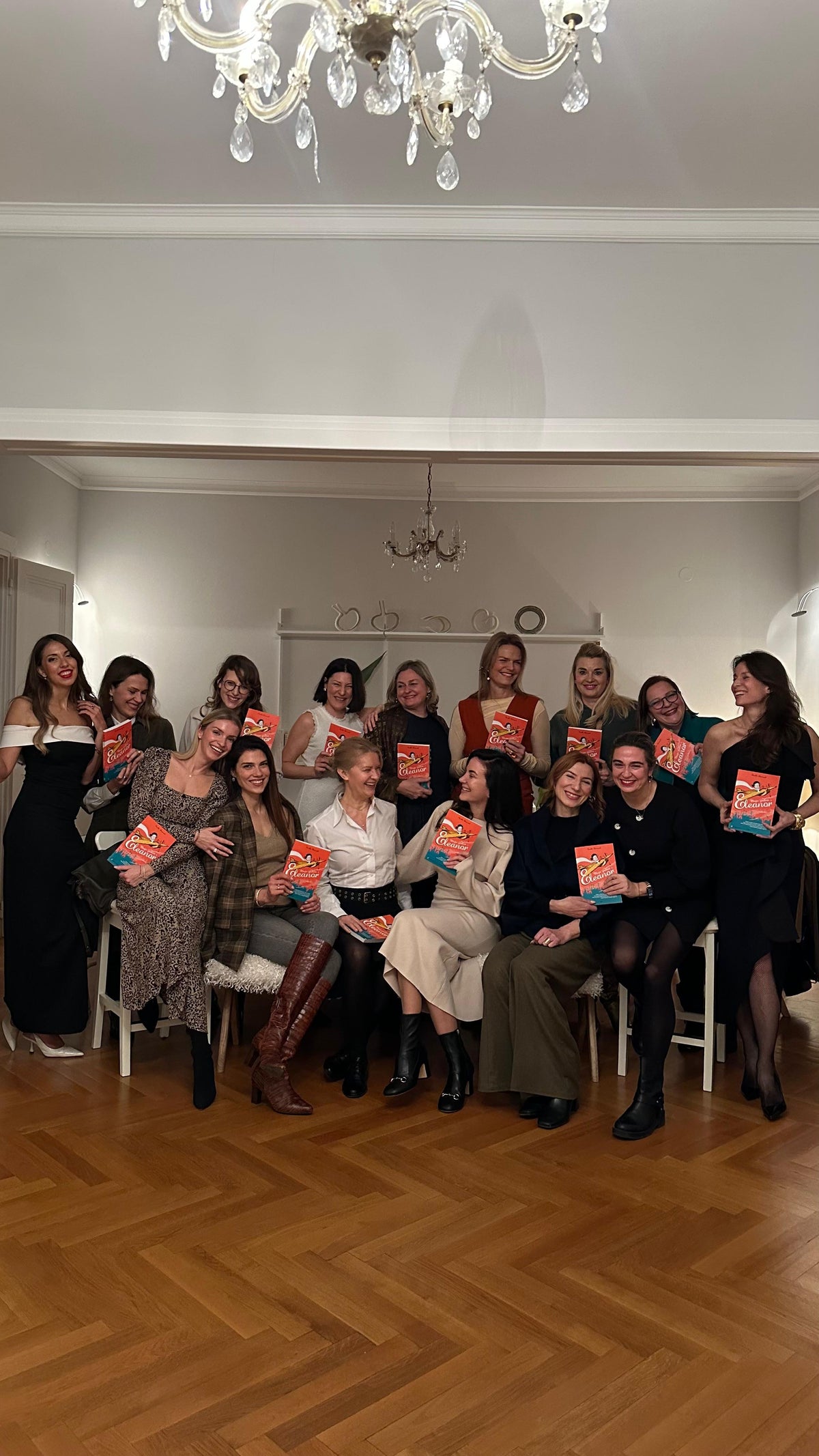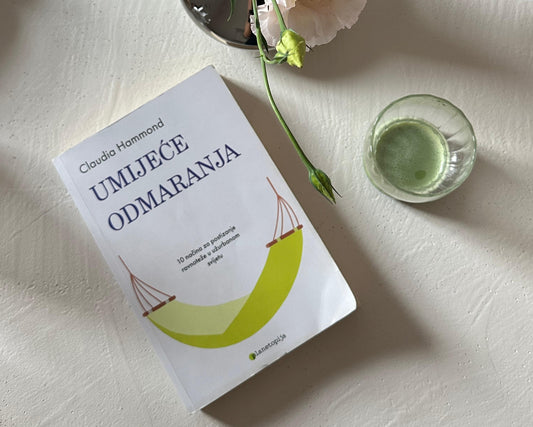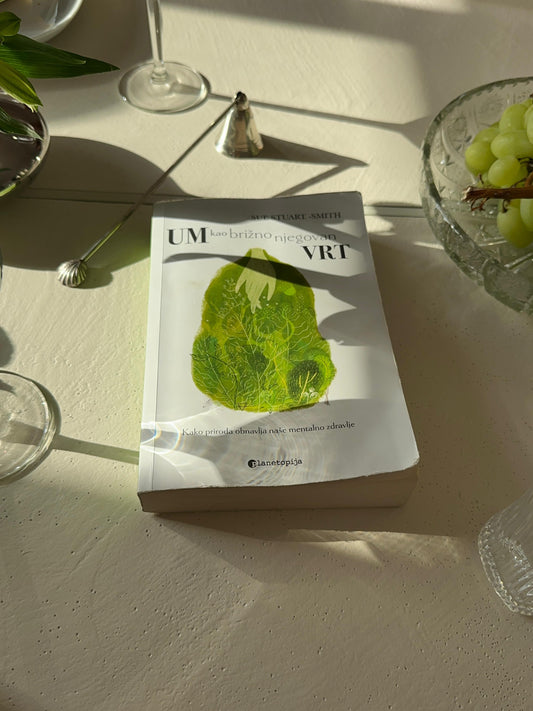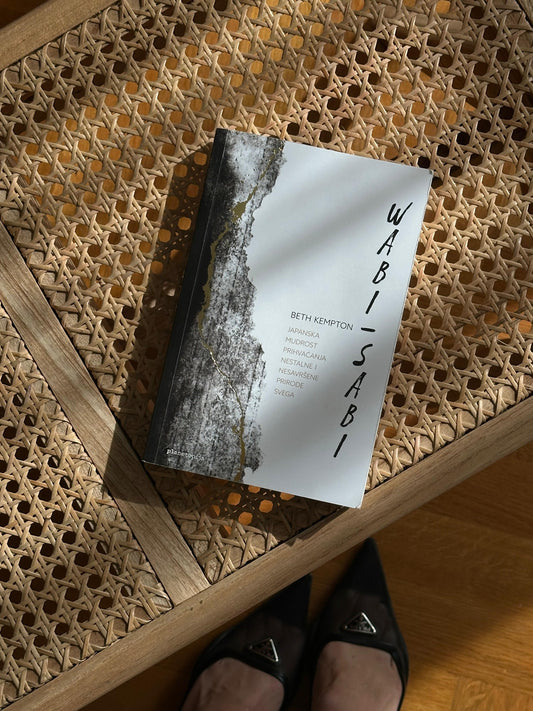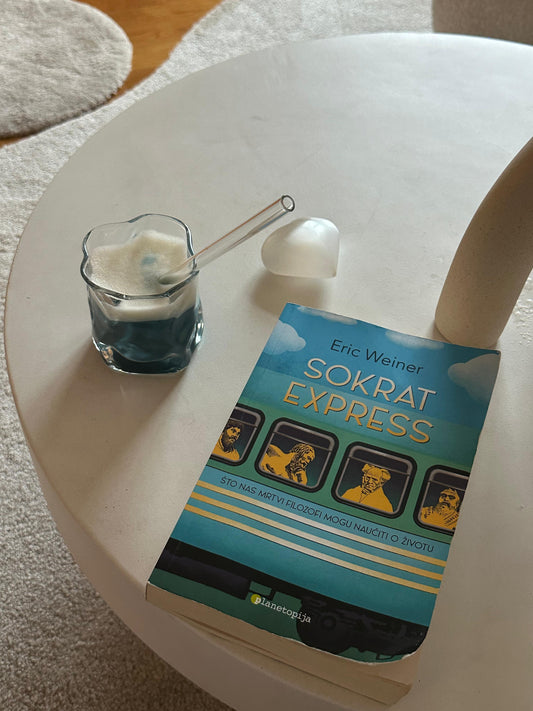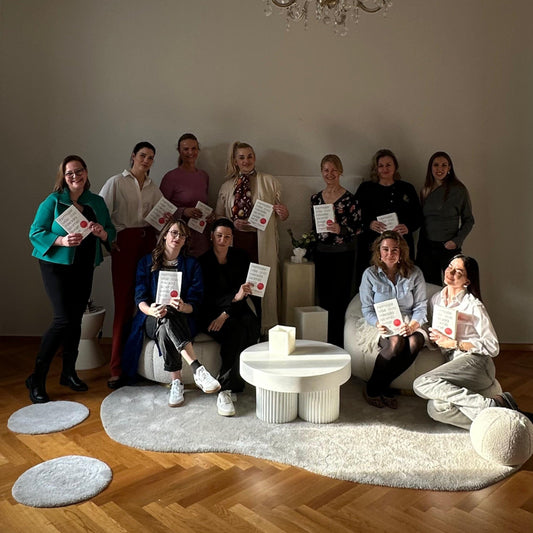Daily Dose of Courage: Lessons from the Book My Year with Eleanor
Fear is something we all feel. It's not just an abstract emotion or a philosophical idea, but an almost daily feeling that quietly, almost imperceptibly, walks alongside us throughout the day. Maybe it's not always about something fatally scary -- often it's a quiet, inner voice that prevents us from doing what we really want.
In our individual experience, as well as in the public forum of our shared cultural existence, courage and fear are emotions that sit side by side. It's precisely when we become aware of them that we discover who we are and what we're capable of.
Noelle Hancock, the author of the book My Year with Eleanor, tries to show us in a simple, almost naively honest way how, by facing fear, we can transform ourselves.
Time without despair and space for courage
This February, we read and discussed the book My Year with Eleanor by Noelle Hancock in the Materia Book Club.
Noelle Hancock was an overworked New York blogger. She followed the lives of celebrities and put out an article every half hour. And then everything stopped. Due to the global crisis, she got an unexpected layoff. Inspired by Eleanor Roosevelt and her saying "Do one thing every day that scares you," Noelle decides that for a year she will face various fears and turn it into a project with which she wants to explore and become the person she has always wanted to be.
From fast-paced news to introspective adventures
After the author stopped following other people's lives and found more time for herself due to the layoff, she began to think about what kind of person she used to be and where she is now.
Memories of the days when she was a spontaneous girl, filled with joy and carefreeness, slowly turned into realizations of how far she had strayed from her true nature over the years. Fears -- from simple, almost trivial conflicts to deeply rooted fears of the unknown -- began to take control.
"When I started paying attention, I saw how often I avoid conflict. I got used to saying it's a sign of maturity. But at the heart of those situations lies a fear of offending someone. If I couldn't stand up to smaller challenges, how could I find the courage for bigger ones?"

Inspiration from past times: Lessons from Eleanor Roosevelt
In a world where we often turn to modern idols, it's hard to ignore the influence of Eleanor Roosevelt -- a woman who, despite her title and position, became a symbol of true courage.
Her life, filled with struggles against social injustices and personal demons, shaped a philosophy that still teaches us today that true strength is not measured by the absence of fear, but by the ability to, despite everything, march forward.
It's no coincidence that Hancock chose the words of Eleanor Roosevelt as the driving force of her project. Eleanor Roosevelt, former First Lady, faced numerous social and personal challenges, and remained a lasting inspiration for all of us who struggle to be a better version of ourselves.
It is precisely the parts of the book that describe Eleanor's life and in which the author highlights her motivational quotes that all members of the Book Club singled out as the most inspiring and interesting parts of the book.

Do one thing every day that scares you
The call of Eleanor Roosevelt's legendary statement to do something that scares us every day has become not only an inspiration, but also a practical plan for change for Noelle Hancock. It was precisely this philosophy that allowed Noelle, after a sudden layoff, to recognize an opportunity in misfortune and embark on a path that, although filled with uncertainty, promised a new, authentic future that very often is not what we set for ourselves and thought we wanted it to be.
Her project, which stretches throughout the book, is filled with applicable challenges -- from performing as a stand-up comedian and singing karaoke, to adrenaline-filled adventures like skydiving, piloting, diving with sharks, and climbing Kilimanjaro. Each new activity was a confrontation with her own limits, a small step towards empowering an inner voice that had long been silenced.
It's interesting how, facing what some members of the Materia Book Club call "unnecessary fears" (like swimming with sharks or piloting), often reveals something more than just courage -- a deeper truth about ourselves is also revealed. Maybe we didn't consciously choose to live the life we live, but have gotten used to safe, predictable patterns. And that's perfectly fine -- who doesn't love a comfortable life?
However, when we unexpectedly face the loss of what we thought was essential -- as Noelle lost the job that was an obvious part of her identity -- we realize that our own fears prevent us from opening up to something new, to a life we can truly choose. We often didn't have the courage to put into action what we wanted, because we concluded that it was too complicated or we took the path of least resistance.
Noelle explains in the book - we may have chosen that path simply because we are actually afraid of the other one.
That realization often comes painfully, but also liberatingly. The book in a fun way teaches us that facing fear is a process -- a process that requires honesty with ourselves, admission of our own weaknesses and, above all, a decision not to settle for what is familiar to us.
Every day, when we decide to do something that scares us, we show ourselves that we can change, that we can grow and that we are capable of transforming our future, even if that future is not what we once imagined it to be.

"What you don't do can be a destructive force."
Many of us keep our dreams and ambitions under lock and key, not because we lack the desire for change, but because acknowledging our own weaknesses takes courage -- and that courage, like any other muscle, needs to be exercised. It's no secret that facing the unknown, the fears that quietly hold us back, is a challenge that doesn't come easy.
Some members of the Materia Book Club criticized the idea that we must face the unknown every day, explaining that some of Noelle Hancock's feats, from singing karaoke to piloting or skydiving, seemed superficial. Or at least the way she talks about them was superficial.
But on the other hand, we can't help but wonder if it was precisely those seemingly "unnecessary" activities that had the power to reveal something much deeper -- are they an opportunity to free ourselves from the shackles we have set for ourselves?
Still, I believe that fears, whether trivial or deeply rooted, represent barriers that prevent us from living authentically. Sometimes the silliest venture to get rid of ourselves and our limitations and expectations is a precious moment of realization and admission to ourselves that - we are worthy.

Emotional geography: Where fear and courage meet
Through the pages of My Year with Eleanor, Hancock vividly describes how the emotional geography of our lives consists of areas where fear and courage intertwine. Her descriptions of adventures are good to look at as meditation about how every encounter with the unknown shapes our inner map.
As she stood on the edge, ready to step into the unknown -- whether it was a literal skydive or a symbolic encounter with her own demons -- she felt her inner world expand. Every challenge, no matter how unfeasible it may seem, is like a piece of a puzzle that together creates a complete picture of who we are.
Although Hancock wrote this project like a novel, readers sometimes find it difficult to identify with her adventures. Sometimes clumsy ventures, like swimming with sharks or piloting, seem like something that is easy to do, as if they lack a deeper lesson. However, it is precisely here -- in the very exposure, in the fact that this book exists -- that great value is hidden. Fear, that quiet inner voice, is hard to put into words; what happens within us is often too abstract to be simply translated into thoughts. There are only feelings.
Many of us don't have the privilege of dedicating a year to our own exploration, but just like any other book, this one should serve as inspiration, as a mirror. Questions like: "What do I really think about myself? How do I deal with life? Do I have the courage to change something?" encourage us to re-examine our inner state and lay the foundation for real change.
Today's world, full of uncertainty and change, requires us to re-examine our priorities. Global crises, changes in the way we work and incessant digital streams create additional pressures -- and in such an environment, our inner voice, whether full of fear or courage, becomes crucial. As we face these challenges, we build our emotional geography -- a map that guides us through each day, through each uncertain step.
Noelle Hancock in her book reminds us of a simple but powerful truth: courage doesn't mean the absence of fear, but the decision to, despite it, keep moving forward.
Facing our own fears -- whether it's small everyday challenges or deeply rooted doubts -- is the key to transformation and letting go of all those missed opportunities that hold us back.
As we reflect on our own emotional geography, it's important to remember that our lives are not built only by what we planned. Sometimes, by facing the loss of what we thought was essential -- as Noelle lost the job that was the foundation of her identity -- it is revealed that our own fears prevent us from opening up to something new.
We may not have consciously chosen to live the life we live, but have become accustomed to safe, predictable patterns. But when we dare to break the chain of self-imposed limitations, a deeper truth about ourselves is often revealed -- the realization that, despite everything, we are worthy.

